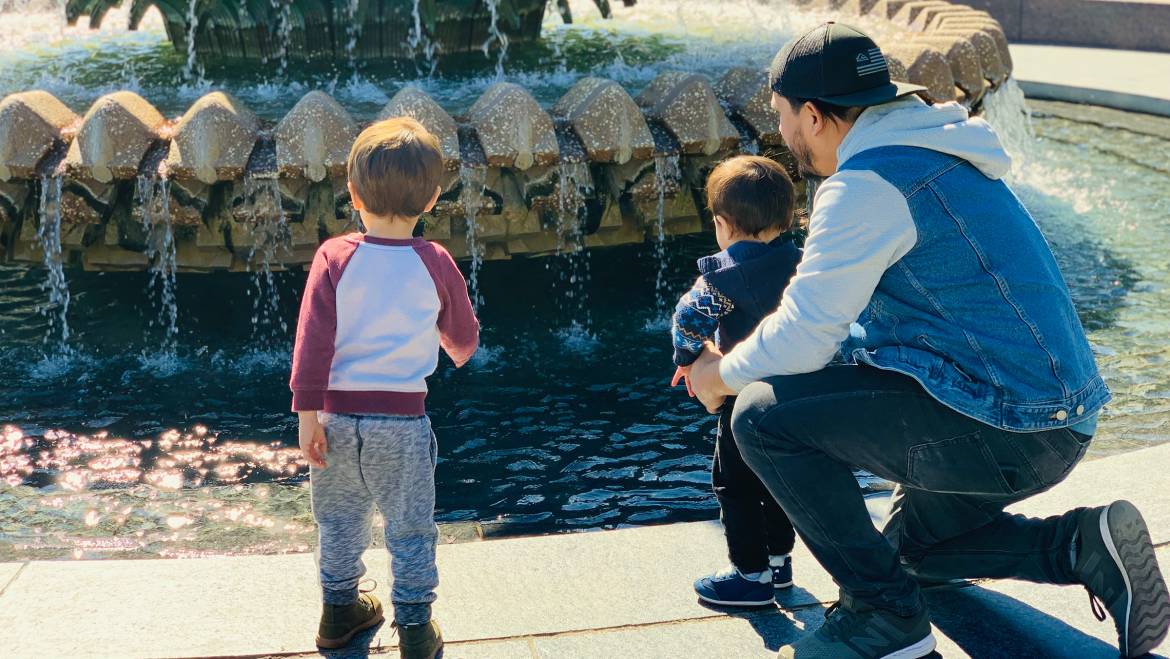Most adults would agree that a relationship with children should be respectful. After all, respect is a universal right. The problem lies when what is asserted is not exactly consistent with what is being done. Respect should be the same for everyone, or more specific: we should respect everyone in the same way. Especially children.
The relationship between an adult and a child is often far from being respectful, when children should specially see respect modeled reciprocally. The social impact of treating our children differently is radical. Eloise Rickman explains it like this:
“As parents, the most powerful thing we can do is to model the sort of behaviour we want to see, showing up as the kind of humans we would like our children to grow into.”
Extraordinary Parenting: The Essential Guide to Parenting and Educating at Home
Sadly, our culture is programmed to treat children in a different way. Even with actions that could possibly be considered disrespectful if done to an adult. This has made me reflect on how I should behave with my son. In those little details, which after all do matter. To make an effort to listen to what he has to say, even if I don’t understand it or it just seems to be of no importance. I have reconsidered talking about him to other people, especially if it is something negative and he is not there or is, but it is something that could affect him. And I have learned to value and be patient in his learning, even if it means re-instructing him in something that we have been working on many times and that will surely happen a few more times.
If I used all these situations in the opposite way on an adult, you would surely label me as disrespectful. Because it is not polite, to ignore an adult who is sharing an opinion or simply undermine him in front of others because what he is saying is considered worthless. Neither is it asking him to be silent and sending him to do something else because what is being talked about is not in his interest. It is not respectful to speak ill of someone, or of personal matters without the person being present or if it could affect them. And neither is it, getting impatient simply because someone has not yet skillfully managed to learn something that they have not known for a long time. And now, if you see it from that point of view, you begin to notice that perhaps we have not been totally respectful with our children. And that we still need to make changes in our relationship with children.
With shame I admit that there are many times that I have not treated my son with the respect that I should. And it has been in the process of developing awareness of my responsibility and the impact of my actions on my son, that I have begun to discover that there are different ways to instruct. Perhaps what is accustomed is not the best. Perhaps raising our children with love and respect can have a profound impact on their lives and on our society.
“Parenting can be a truly radical act. The way in which we raise our children can have a profound positive (or negative) impact on our families, our communities, and our world.”
– Eloise Rickman –
Extraordinary Parenting: The Essential Guide to Parenting and Educating at Home
How can you cultivate a more respectful relationship with a child? Start with small changes like these:
- Consider what you are going to say about the child to other people.
Although the children seem to not be paying attention, they are. They hear what you say about them and I can assure you that what you are saying can affect them. If you do not speak ill of an adult in front of him, do not do it with a child.
- Resolve an interruption in a respectful way.
It is not about leaving everything to listen to what the child has to say, but rather assuring him with respect that in a moment you will be able to attend him. - Listen carefully to what they have to say.
Although sometimes you do not understand the child´s opinion or it may seem unimportant, it is valuable because he considers it that way. If you make an effort to pay attention, you will surely find his deductions interesting or you have simply shown him that listening to everyone’s opinion is important.
- Be patient in their learning.
Show him the right way to do things over and over again. Remember how many times you have learned something new and how many times you have been wrong. Learning is difficult and requires practice.
- Value their feelings.
When you see an adult crying, even if the reason doesn’t seem coherent to you, it would be unusual to tell them to stop crying over nonsense or silly things. You would be silent or even try to comfort him. Have this same approach with children. Suffering is real for them too.
- Apologize.
We all make mistakes. Forgiveness is part of the respect you can show a child, as well in teaching them how they can respond to their faults.
There are always new ways to improve our respect for others. Why not start here? … However, there are many changes we can make to improve our relationship with children. Can you think of any more?



